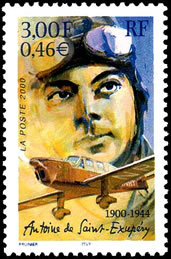Elegant writing is effective writing
by David Patterson
When your thoughts are well organized, it’s easier to write in shorter more elegant sentences. That’s not to say that longer, more complex sentences are a sure indication of a rambling mind. But when clause follows clause, phrases appear in abundance, and modifiers multiply like rabbits, it’s time to reorganize and simplify. It's time to separate the wheat from the chaff. That’s if you want your writing to flow into the minds of your readers.
If you’re writing nonfiction, that flow should be the first goal of your writing. Sure, you want readers to respond positively to your message. In all likelihood, that's THE reason you’re writing. But in order to enable that response, readers first have to be able to think clearly about your ideas, supporting evidence, and reasoning.
Writing is a tool for delivering ideas
Writing is a tool you use to deliver evidence, reasoning, and ideas. That's where you want your readers' attention to fall—on your ideas, the evidence that supports them, and the reasoning that created them. The last thing you want is for readers to have to stop and think about your writing. If readers are trying to trace the structure of your writing, sort out its phraseology, or determine the meaning of your words, you’re filling their minds with debris that blocks their ability to think about your ideas. You're not enabling them; you're disabling them.
To hold readers’ attention and open their minds to your ideas, write elegantly. That’s good advice for all writing, not just nonfiction. The most effective writing is elegant writing. But just what is elegant writing? First of all, it's not flashy. It's not a flurry of flourishes. Get over your desire to be a "writer" and instead focus on being an effective communicator. After all, the theory is that you have ideas you want to communicate.
There is a simplicity & clarity to elegant writing
A piece of writing is something you create for a purpose. When we say that something someone has created is elegant, we're saying that it delivers its intended result in a quicker, simpler way than something that is inelegant. The most elegant solution to a problem is the shortest time/distance from recognition to solution. On a piece of paper, the shortest distance between two points is a straight line. That straight line may not be as eye catching as a curved line you could draw connecting those same two points, but it is more elegant. Rather than calling attention to itself, a straight line keeps the focus on the two points. Elegant writing keeps readers' focus on the content it carries rather than the writing.
When something is elegant, we say it is refined. When we refine something, we distill it to its essence. The more complex your writing is, the harder readers have to work to understand it. Your writing shouldn't need to come with instructions—such as a dictionary—in order for readers to understand its content. Nor should readers find it necessary to deconstruct what you've written in order to suss out its meaning.
The best definition of elegant writing
Perhaps the best definition of elegant writing can be adapted from something said by Antoine de Saint-Exupéry, the French pilot and aircraft designer who wrote the children's book The Little Prince: "A designer knows he has achieved perfection not when there is nothing left to add, but when there is nothing left to take away." Just substitute the word writer for designer.

